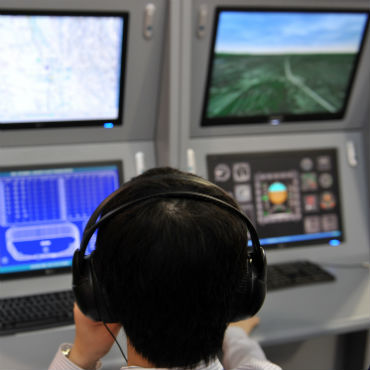Should airlines pay to get FAA tech past the 1990s?

The nation's air traffic control system is in dire need of stable funding. Is taking the checkbook away from Congress the answer?

Without stable funding, the Federal Aviation Administration might never successfully modernize the nation's air traffic control system. That's why many are calling for the government to take a big step back from air traffic control and let a not-for-profit corporation run the show.
"It's urgent, and the time is now," said Paul Rinaldi, president of the National Air Traffic Controllers Association, decrying "unstable, unpredictable budgets" at a May 13 event hosted by the Bipartisan Policy Center.
"If we don't do something today, five years from now we might be in a Metro situation," he warned, pointing to the plight of the District of Columbia's crumbling subway system.
Rep. Bill Shuster (R-Pa.) introduced legislation in February that would reauthorize the FAA through 2019 while establishing a federally chartered, not-for-profit air traffic control corporation. It's similar to the Nav Canada corporation that governs Canadian skies, and U.S. lawmakers have been considering such a notion for years.
Rinaldi embraced the idea. If the FAA can't secure capital funding and modernize its technology, it could lose flight control of the world's oceans to a more modern outfit such as Nav Canada, he said.
American systems are still dependent on radar to track aircraft, while other countries have invested in satellites that enable controllers to send aircraft on more direct, fuel- and time-saving paths.
The FAA's $40 billion Next Generation Air Transportation System seeks to incorporate GPS, but the project has been fraught with funding battles, management trouble and cybersecurity risks.
Rinaldi pointed to last year's rollout of En Route Automation Modernization as a prime example of finance-driven dysfunction.
"The World War II technology is phasing out, and we're bringing in the 1990's technology -- because it takes that long," Rinaldi said.
The "new system" was 15 years out of date and $1 billion over budget by the time it finally went online, he added.
Some members of the aviation community do not support the creation of a non-for-profit corporation, which would be funded by user fees.
But Charles Barclay, former president and CEO of the American Association of Airport Executives, echoed Rinaldi's comments.
The air traffic control system needs capital financing and a "focused, empowered board of governors," a role Congress cannot fill because of its sprawling nature, Barclay said.
FAA's current authorization is slated to expire on July 15.
NEXT STORY: The Internet’s Favorite Website


